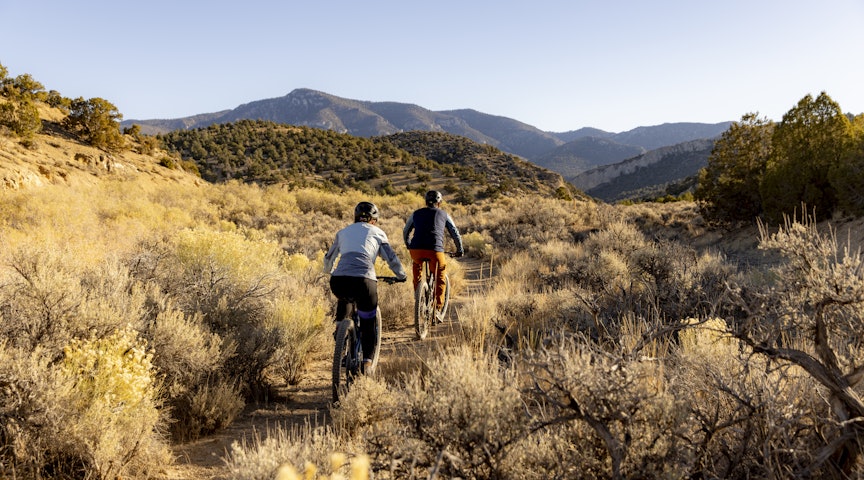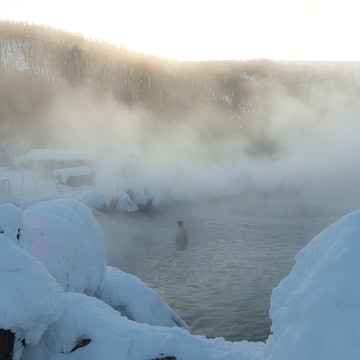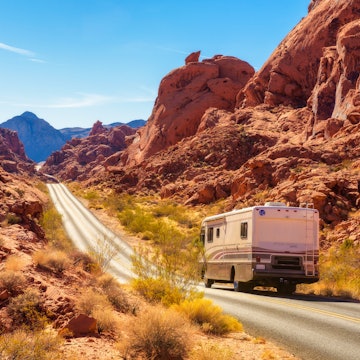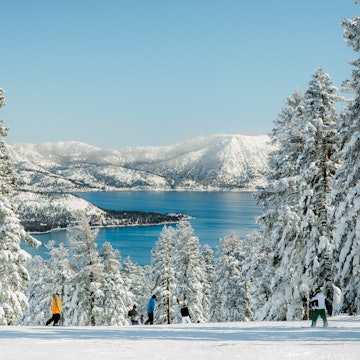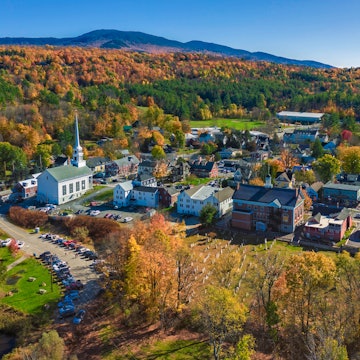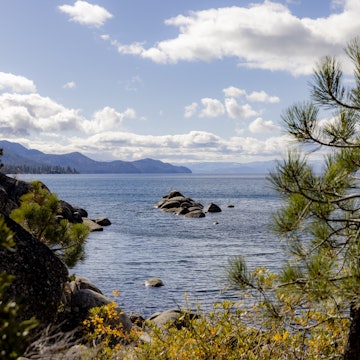
Go remote in Nevada’s Basin and Range National Monument
Sponsored by

Mar 16, 2022 • 5 min read

Basin and Range is 704,000 acres of protected Nevada desert and among the newest additions to the state’s wealth of protected lands © Bailey Freeman / Lonely Planet
Do you crave an outdoor adventure that takes you truly off the grid? A desert journey that reveals the subtle beauties of our planet in striking detail? Look no further than Nevada’s Basin and Range National Monument – a place where the air smells like earth and sage, the sky is blue and far-reaching, and the only itinerary you need is the one you make for yourself.
Here’s our guide to exploring one of the country’s most remote – and rewarding – national monuments.
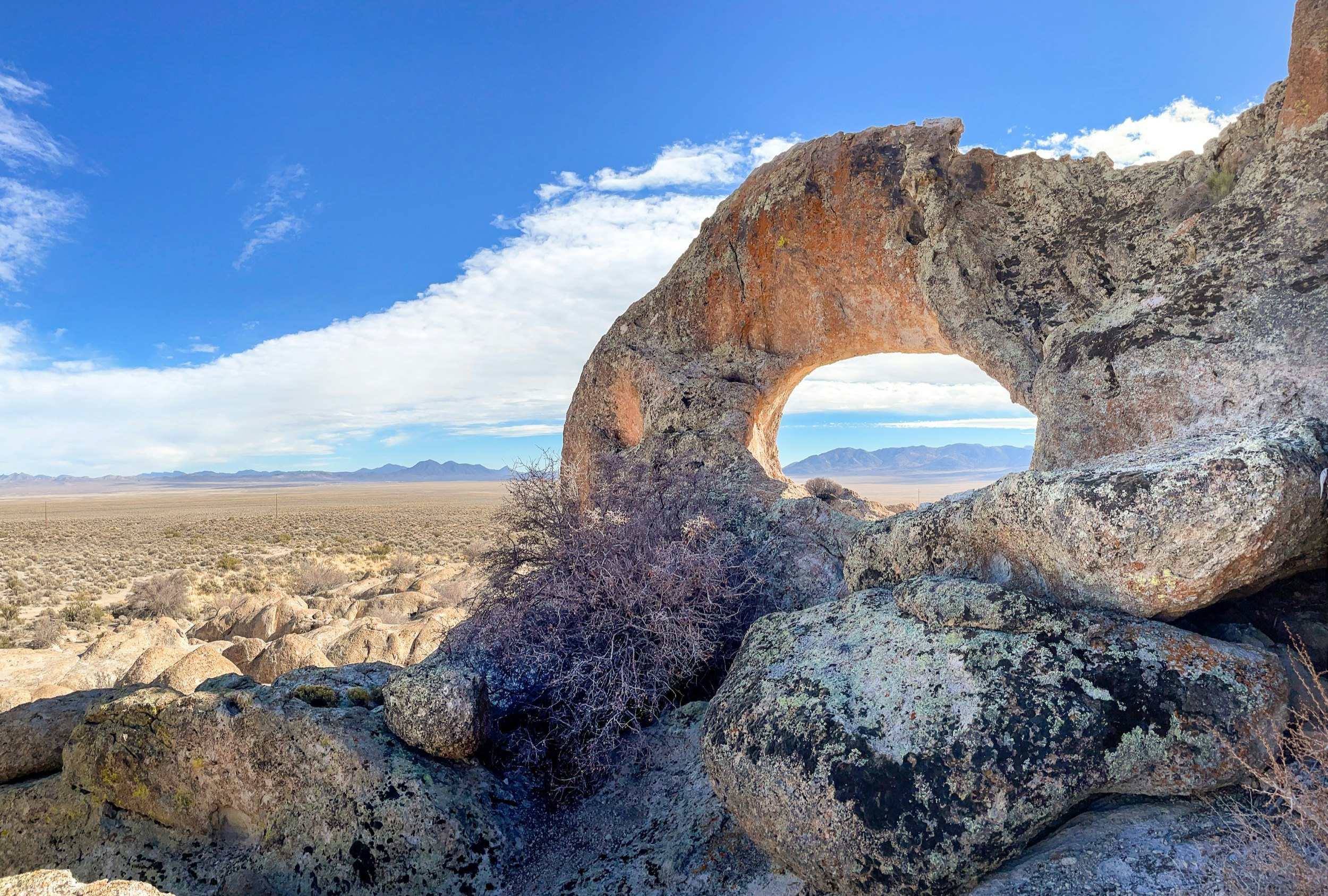
What is Basin and Range National Monument?
Located on the traditional lands of the Newe / Western Shoshone Nation, Basin and Range is 704,000 acres of protected Nevada desert that was designated as a national monument in 2015, among the newest additions to the state’s wealth of protected lands. This massive natural space is bigger than the country of Luxembourg, or the world cities of Tokyo, Istanbul, Los Angeles, or Moscow, encompassing a bounty of adventure experiences in a truly isolated location – Basin and Range’s current yearly average for visitors hovers around 40.
While it shares a similar name with the nearby Great Basin National Park, these two units offer very different outdoor experiences. Managed by the Bureau of Land Management, Basin and Range has no official hiking trails (though cross-country hiking is permitted) and no established campsites – visitors can camp wherever they see fit, as long as they don’t build fires too close to the unique rock formations. At the national monument, you truly design your own adventure.
Wildlife big and small
Basin and Range is a solitary place, but that doesn’t mean it’s devoid of life. The desert is home to animals of all sizes – come with a pair of binoculars and you’ll likely spot at least one of its resident critters. Pronghorn antelope (a misnomer – they’re actually related to the giraffe!), bighorn sheep, coyotes and bobcats count for some of the larger creatures that roam the monument.
Smaller animals occupy the sage- and blackbrush-speckled basins and washes: kangaroo rats, kit foxes, jackrabbits and a smattering of snake species bring the desert to life. Birds also frequent the monument, with raptors like the red tailed hawk and golden eagle stealing the show.

Geology: hello, volcano!
The monument’s diverse geology is a standing testament to the area’s dynamic natural history. The entire area used to rest beneath an ancient sea, and more recently (about 40 million years ago), it experienced a fair amount of volcanic activity. Today, you can see remnants of these explosive events in the presence of ash-flow tuff, a light-colored rock that has weathered away into the otherworldly stone figures that dot the landscape – the monument’s iconic Natural Arch and vertical rock towers are made primarily of tuff.
Dive into human history
Basin and Range also protects some important human history. The monument includes several well-preserved petroglyph sites dating to around 4,000 years ago – head to the Newspaper Rock/White River Narrows Archeological District, and the Mt. Irish Petroglyph Site to see the greatest concentrations of drawings. These petroglyphs reflect multiple styles (Fremont and Great Basin among them), and anthropologists believe this indicates that different groups moved across the basin and possibly interacted during this period. The inscriptions feature clearly etched zoomorphs (animals like sheep and antelope) and anthropomorphs (human-like figures), along with numerous shapes and patterns.
Important note: Basin and Range anthropomorphs are sacred to local Indigenous communities, and they request that visitors refrain from taking pictures of (and disseminating images of) these particular works.

Look up: Basin and Range’s dark skies
As you might expect, this secluded wonderland is the perfect place to view the night sky. The monument doesn’t have any electric lights to obscure the view, and thousands of stars, planets and galaxies are visible to the naked eye. To see even more, find a good spot to set up a telescope and take in all the celestial spectacles you can handle.
“The night skies in the monument are some of the darkest skies in the Lower 48 – they’re just spectacular,” says Basin and Range Outdoor Recreation Planner Michael Irving. “If you live in a large urban area or haven’t spent a lot of time in rural parts of the country, dark skies will just blow you away.
“They’re becoming an increasingly rare thing in the US, so to have a place like this – it’s something we really want to protect. We’re trying to preserve an experience that a lot of people had growing up, and that they want their kids to have.”
Connect with the Basin and Range Dark Sky Cooperative to learn more about the area’s stargazing scene and how you can help protect it.
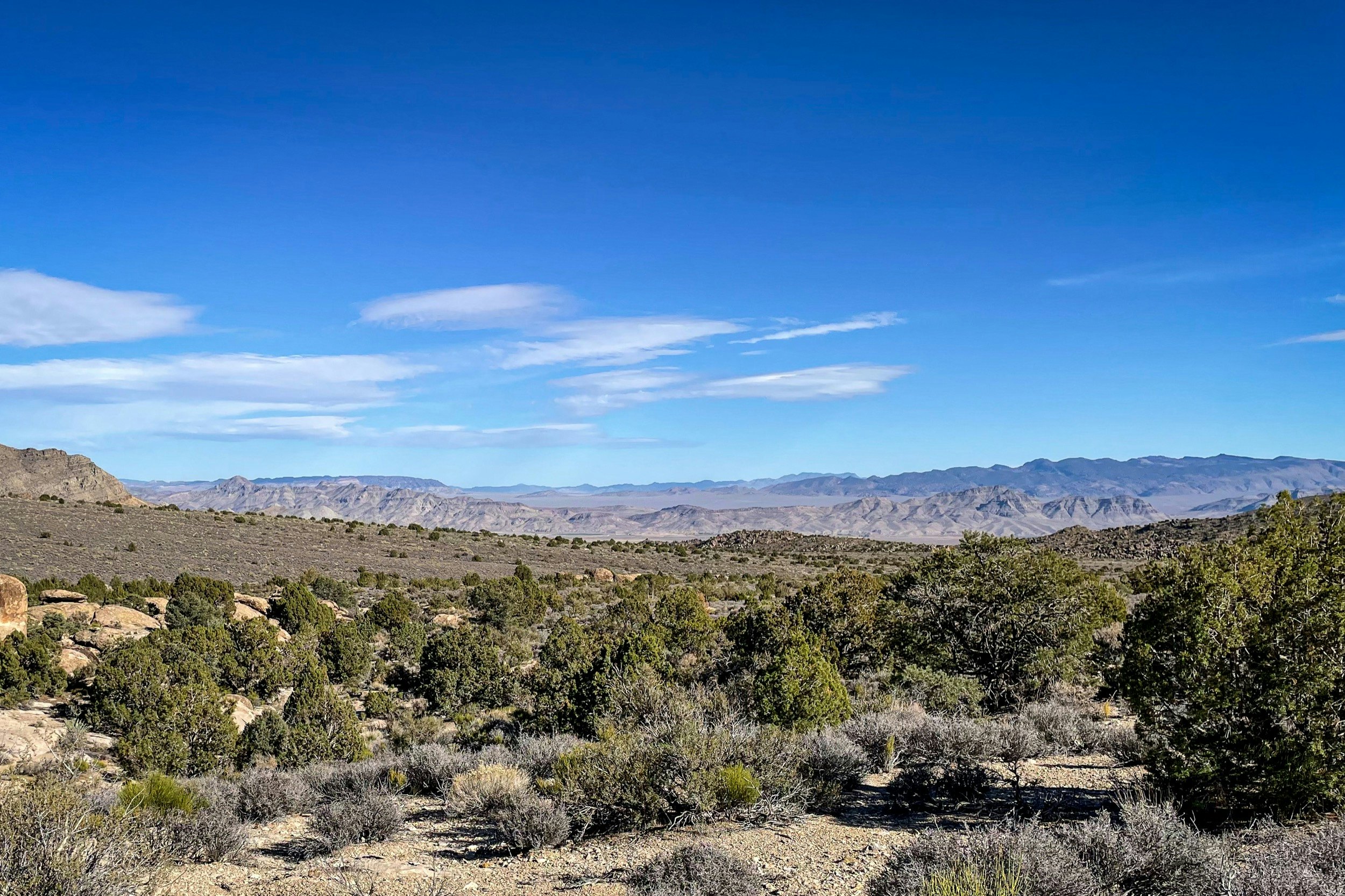
Go safely
While the enticing vastness of Basin and Range may have you planning your next road trip, a visit here requires mindful planning and a fair amount of adventuring skill. Here are a few pointers to make sure you visit safely:
Contact the Basin and Range BLM offices to get advice and learn about any potential hazards they’ve found in the monument.
There is no cell service in the area, so make sure you bring a paper map or download maps to an offline GPS before you hit the road. A satellite phone couldn’t hurt either.
Always tell friends and family when and where you’re going and when you’ll be back. Rarely will you see another car or visitor, so someone should know your itinerary in case of an emergency.
Drive the right car – high-clearance, 4x4-capable vehicles are a must. While some of the roads are well-groomed, some double as obstacle courses that will damage your sedan. On a similar note, make sure you have a fully inflated spare tire (or two) and you know how to change a flat.
Carry much more water than you think you’ll need — two gallons per person is a good rule of thumb. Extra food, too.
Visit Travel Nevada’s Recreate Responsibly site for tips and practices to protect yourself and the environment.
Sponsored by Travel Nevada
As a travel entertainment and inspirational media outlet, we sometimes incorporate brand sponsors into our efforts. This activity is clearly labeled across our platforms.
This story was crafted collaboratively between Travel Nevada and Lonely Planet. Both parties provided research and curated content to produce this story. We disclose when information isn’t ours.
With sponsored content, both Lonely Planet and our brand partners have specific responsibilities:
-
Brand partner
Determines the concept, provides briefing, research material, and may provide feedback.
-
Lonely Planet
We provide expertise, firsthand insights, and verify with third-party sources when needed.
Take your United States (USA) trip with Lonely Planet Journeys
Time to book that trip to United States (USA)
Lonely Planet Journeys takes you there with fully customizable trips to top destinations–all crafted by our local experts.
